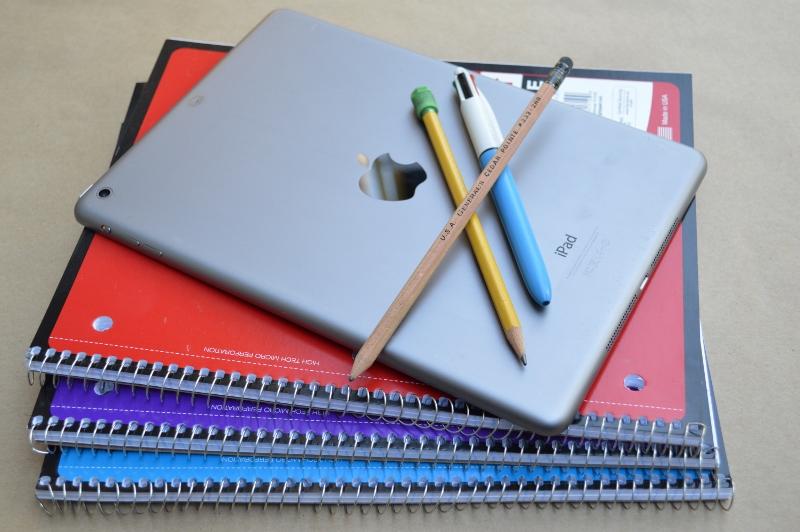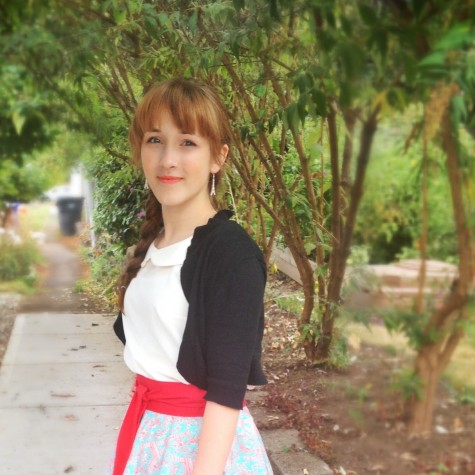iPads: Hit or Miss?
Students respond to the transition to iPads.
iPads make the load of things to carry a lot lighter.
October 27, 2014
Now that the school year is more than a month in, students are used to using iPads, but do they like using them?
A survey was given to 25 sophomore Honors Biology students, asking the question: How do you like using the iPads? Sixteen percent love the iPads and wish that La Salle had transitioned to them sooner. Fifty six percent like the iPads, though say there have been some technical difficulties. Twenty percent feel neutral, and eight percent think there is at least something good about the iPads. None chose that they absolutely hated it and never wanted to see an Apple product again.
Various students were also interviewed and asked to give their thoughts on using the iPads so far.
“I do like the iPads because … it really helps me to access my books easier, it helps me to organize my thoughts a little bit better, and I also like how when I go home, I don’t have a giant heavy backpack to take with me because of all the books that I have and all the binders,” says Sophomore Lydia Pearce.
Sophomores Jessica Truong and Kristin Dinh also like the transition to the iPads because of the fact that “it’s lighter” compared to last year. Dinh says, “I like the iPads because of the decreased book load that I have to carry around throughout the day.”
The iPads have also helped with organization and use of paper. Pearce also says, “I can keep all my notes on one device and have all my… things, like all my materials [easily accessible] on one thing, instead of having to search through my messy locker and find everything. I just have to know, ‘Okay… I’m going to find my Biology notes in Notability. I’ll open up Notability, I’ll find the Biology folder and find the notes that I want.’”
Having this device has also taught self discipline, due to social media and other potentially distracting apps. Sophomore Anna Meyer says she has “learned to limit [her] social media” especially apps like Snapchat and Instagram.
The iPad has brought with it some positive change, like organization and a lighter load to carry, but there is also some hesitation with the transition to mostly electronic work.
Sophomore Meredith Marcinko likes how the school has moved forward in the era of technology, but is also concerned with relying only on electronic sources. She states, “If the internet is down or something happens on our iPads, we may not be able to do our homework.” She also states that she “misses the feeling of turning a page and seeing how many pages [she] has gotten through,” a feeling that others in the school have also stated missing.
Freshman Jack Wilber states that “the iPads can be very useful at times,” but also expresses his concern about the internet connection not working.
Students have mixed feelings about using this expensive tool, but how do the teachers feel about students having access to a potentially distracting device?
Mr. McLaughlin (Mr. Mac) says, “In my quest to be a creative teacher and a writer, I use technology daily. When I wrote my first book in 1989, I had to completely retype my 180-page manuscript on a typewriter 5 times, and even then many of my pages were splashed with White Out! Using MS Word on my laptop to write and design masterpieces while sipping caffeinated elixirs in coffee shops, now that’s magical. So, I deeply appreciate the potential of the iPad as an educational and creative tool.”
Mr. Mac also states, “However, I’m also witnessing its potential for distracting us from deeper levels of thinking and listening…to our own selves as well as to others who are trying to connect with us. That really troubles me. Our challenge is to use this tool wisely while taking time to walk beneath blue autumn skies, kicking our feet through the leaves, and listening to the whispers of our own hearts.”
As Mr. Mac said, there have been some difficulties, as students heard at the end of school announcements on Monday, October 20th from Mr. Kuffner. There have been three major problems: AirDrop, gaming, and students’ ability to “uphold ourselves as Lasallian.”
Some students have been changing their iPad’s name and sending inappropriate content with AirDrop. Therefore, the school administration has added two terms to the acceptable use policy: AirDrop must be off during class, unless the student is told to have it on, and the name of the iPad should not change.
Gaming has also been a problem; many people have been playing various games, such as Madden, instead of or at the same time as paying attention in class. This may or may not take a toll on a students’ grades. Mr. Kuffner reminded all the students to keep the iPads in academic mode.
Some students have been “pushing [the] limits in the wrong way,” Mr. Kuffner said. “Instead of using the iPad as an academic tool, they have been using it as a gaming device or a way to distribute inappropriate content. Students are reminded to use the iPad appropriately, so they can be excellent students and people with integrity.”
The transition to iPads has brought with it both benefits and obstacles, and teachers and students are learning and growing together in this “21st century classroom.”





